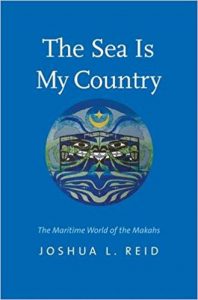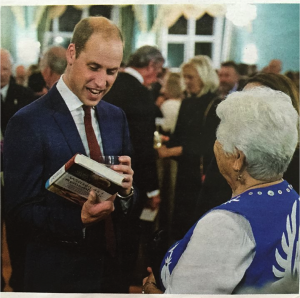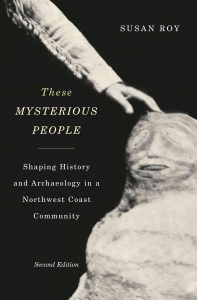
In this widely acclaimed book from Yale University Press’s Henry Roe Cloud series on American Indians and Modernity, Reid, of Snohomish Coast Salish ancestry, offers a rich history of the maritime world of the Makah people. The Sea Is My Country illustrates the ways in which the Makah shaped the economy of the Northwest Coast while also maintaining their ancient relationships to both sea and land. So far this term, we’ve seen collaborations with a clan and an individual; now we will be reading a work created in close relationship with a nation.
 with all of you. It adds to the diversity of examples of collaborative history we have had over these past few weeks. And look who else is reading it!
with all of you. It adds to the diversity of examples of collaborative history we have had over these past few weeks. And look who else is reading it! Leslie Robertson was approached by members of the Kwagu’l Gix̱sa̱m Clan to write a book about their ancestor, Jane Cook. This book offers a different configuration than Roy’s of the relationship between archival materials, disciplinary history, and community/family engagement.
Leslie Robertson was approached by members of the Kwagu’l Gix̱sa̱m Clan to write a book about their ancestor, Jane Cook. This book offers a different configuration than Roy’s of the relationship between archival materials, disciplinary history, and community/family engagement. This week, Susan Roy’s
This week, Susan Roy’s